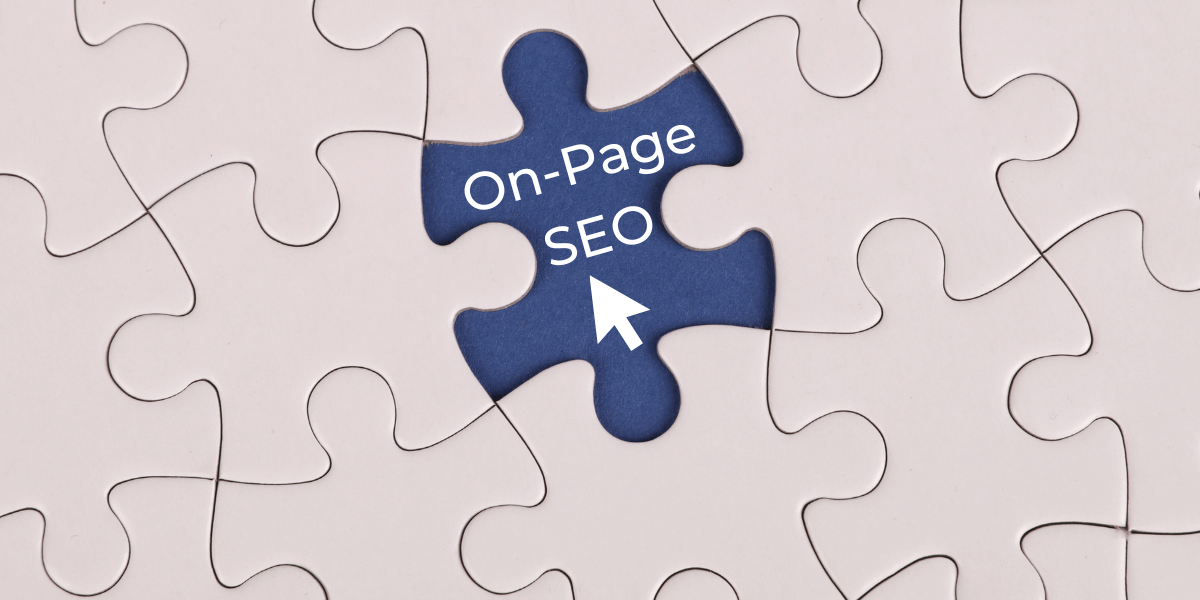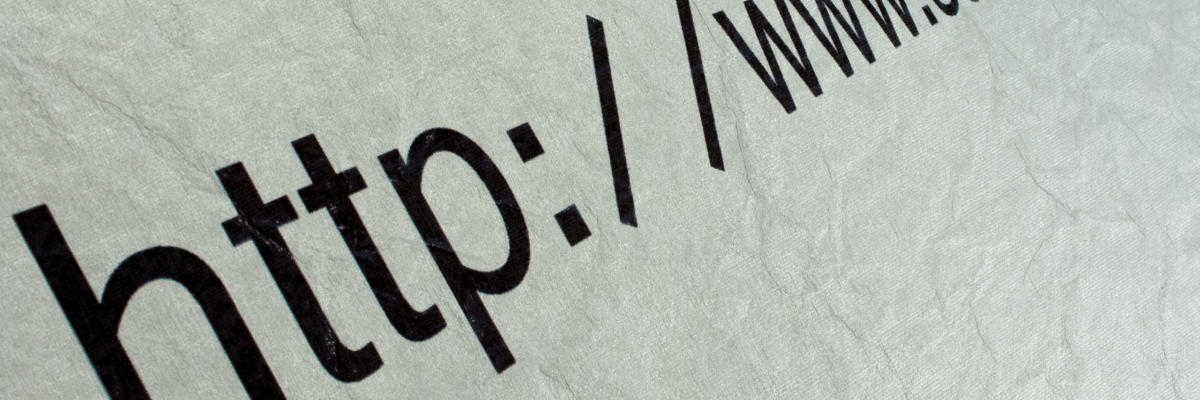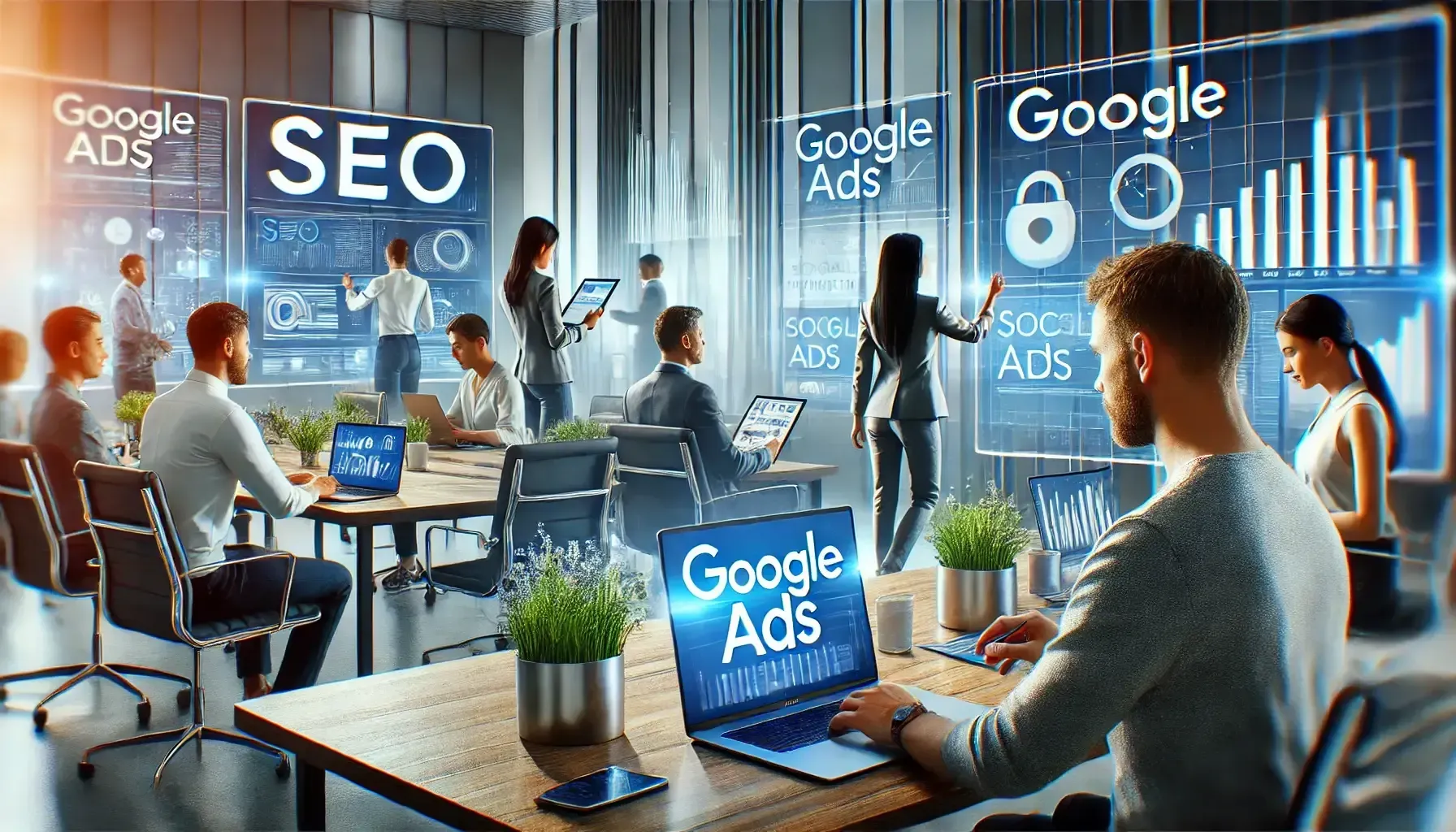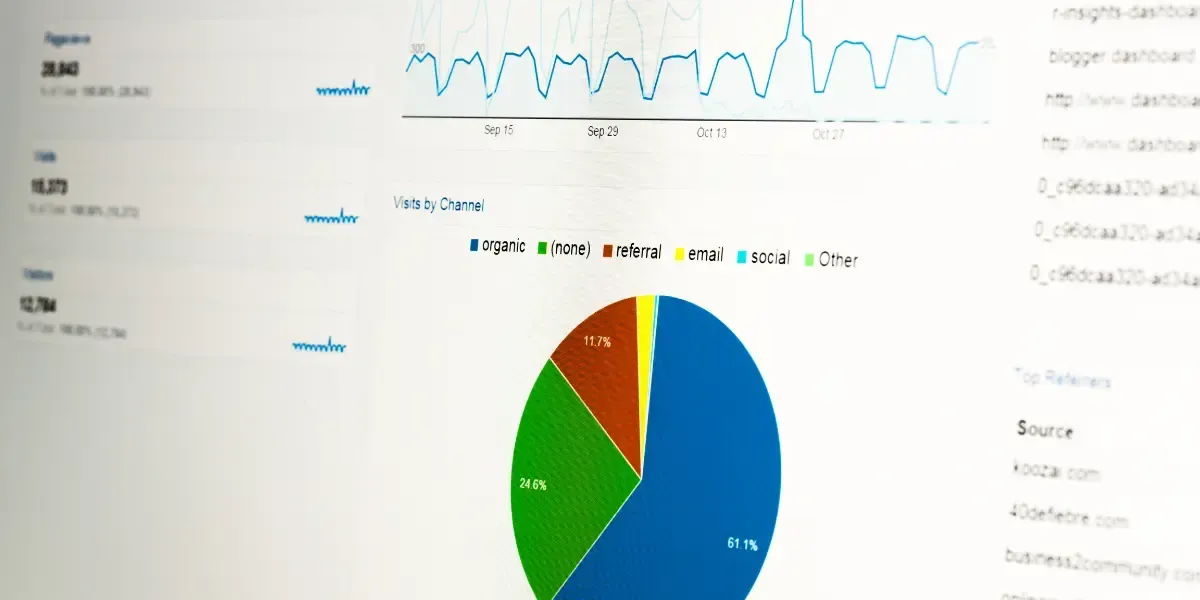5 Common On Page SEO Issues And How To Fix Them

Most experts agree that there are three main areas of SEO, and those are technical, off-page, and on-page.
Contents
- Title Tags and Meta Descriptions
- Duplicate Content Needs to Be Fixed ASAP
- Your URL Structure Needs to Be Clear
- Images Need to be Optimised for SEO & Page Experience
- Top Tips for Internal Linking
Listen to this article
While technical and off-page SEO often get a lot of attention, on-page SEO is equally important for boosting your website’s search engine rankings.
However, many businesses think that creating high-quality content is enough to optimise their on-page SEO, but there’s much more to it.
In this blog, we’ll focus on on-page SEO and explore five common mistakes people make with their on-page content. From duplicated content to missing alt text, these issues can negatively impact your website’s search engine rankings and prevent you from reaching your target audience. But don’t worry – we’ll also provide you with actionable tips on fixing these issues and improving your on-page SEO.
So, join us as we dive into the world of on-page SEO and learn how to optimise your website for better search engine rankings!
Title Tags and Meta Descriptions
Meta titles, often referred to as title tags, are an incredibly important ranking factor for any given page on your website. Some common mistakes you should avoid include making them too short or too long. Typically title tags should be a maximum of 60 characters, and you should make the most of this character limit, as exceeding it will truncate your title in good search results.

It’s also crucial to ensure that your meta title is optimised for your target keywords, including your primary and secondary keywords, and not just stuffed with keywords. Formatting is vital, and it’s recommended to include your primary keyword first, then your secondary keyword and brand name.
Format Example
Primary Keyword – Secondary Keyword | Brand Name/Company
10 Litre Watering Can – Gardening Supplies | Green World
Also, include local modifiers in your title tag, meta and onpage optimisation. For example, SEO Auckland or SEO Wellington shows the search engine you are trying to rank in those cities for a particular service. Adding New Zealand or even NZ, e.g. SEO NZ, will help the search engines prioritise your target country, even if you use a .co.nz domain.
Another mistake is missing the search intent or including irrelevant descriptions in your meta titles, which can lead to a high bounce rate, so make sure your meta titles and descriptions are relevant to the page content. Many people don’t realise that meta descriptions can be truncated if they are too long, so ensure you make the most of the space by writing descriptions up to 155 characters long.
Format Example
Shop the 10-litre watering can at Green World, your one-stop shop for high-quality gardening supplies. Perfect for any size garden or plant collection.
By avoiding these mistakes, you can create meta titles and descriptions to boost your on-page SEO and improve your website’s overall ranking.
Duplicate Content Needs to Be Fixed ASAP
It’s not entirely clear how often Google will index your website, and it’s become less frequent in recent years. But one thing you need to fix before it happens is any duplicated content on your website, whether that’s your page title tags, meta descriptions, H1 tags, page copy, or even testimonials.
Duplicate content is a common mistake people make with on-page SEO, but it can seriously harm your website’s ranking potential. When search engines find identical content across multiple pages on your site or even across different domains, they will not know which to rank higher.
As a result, your website could be penalised for duplicate content and lose visibility in the search results. Therefore, it’s crucial to audit your website regularly and ensure your content is unique and valuable to your audience.
Your URL Structure Needs to Be Clear
This often-overlooked on-page ranking factor is one that people frequently make mistakes with, and that’s your URL structure. Your URL needs to be clean, concise, and relevant to the content on the page.
One of the most common mistakes people make is using generic URLs that provide no context to search engines or users. Another mistake is using long, complex URLs with irrelevant information, making it difficult for search engines to understand the page’s purpose.
Additionally, including stop words or filler words in your URL can dilute the keywords and make the URL harder to read. To avoid these mistakes, keep your URLs short and descriptive, include target keywords, and separate words with hyphens to make them easily readable.

Images Need to be Optimised for SEO & Page Experience
Have you ever loaded up a web page, and the images show up 5 or more seconds later? This is a perfect example of how image optimisation could improve your website.
There are several considerations to make when it comes to optimising images for on-page SEO, and unfortunately, many people make mistakes that hinder their efforts.
One common mistake is not giving images descriptive file names or neglecting to include alt tags. Another issue is failing to compress images and reduce their file size, resulting in slow loading times. There are a number of free image compressor websites, only a Google search away.
Choosing the wrong file format or over saturating a page with too many ideas can negatively impact SEO. By avoiding these common mistakes and optimising your website’s images properly, you can improve your website’s user experience and search engine ranking.
Top Tips for Internal Linking
Internal links are a way to tell web crawlers what pages on your site are important, and making seemingly small mistakes with your internal links can impact your SEO efforts.
One of the most common mistakes people make with internal linking is using generic anchor text, like “click here” or “read more”. This makes it difficult for search engines to understand what the linked page is about.
Instead, use relevant anchor text like “watering can” to fit pages like the earlier example.

Another mistake is linking to irrelevant pages that don’t offer any additional value to the reader. Additionally, having too many links on a page can dilute their importance and confuse search engines. It’s also important to fix broken links to avoid frustrating users and negatively impacting your SEO.
Ignoring link strategy and hierarchy, such as not pointing to the most important pages, can also harm your SEO efforts. You can improve your site’s visibility and search engine rankings by avoiding these mistakes and implementing a thoughtful internal linking strategy.
Conclusion
With over 13 years of experience in digital marketing, Clickthrough has noted that these 5 areas are where companies often fall short in their on-page SEO efforts.
These common on-page SEO issues can significantly impact a website’s search engine ranking and visibility. Still, fortunately, they can be fixed with the right strategies and tools.
By addressing these issues and optimising your website for SEO, you can improve your website’s visibility and attract more organic traffic. With the ever-evolving nature of SEO, it’s important to stay up-to-date with the latest trends and best practices to ensure your website remains competitive in search engine results pages.
Remember, SEO is a long-term game, and patience and persistence are key to success.
FAQ
What is on-page SEO?
On-page SEO refers to optimising individual web pages to rank higher and earn more relevant traffic in search engines. Key on-page SEO factors include using targeted keywords and phrases, high-quality and relevant content, properly formatted HTML code, and optimised title tags and meta descriptions.
How can Google Web Stories help drive traffic to my website?
Keyword research plays an important role in on-page SEO. By identifying and targeting the right keywords, website owners can optimise their content to rank higher in search engine results pages (SERPs) for specific search queries.
Digital Blog












